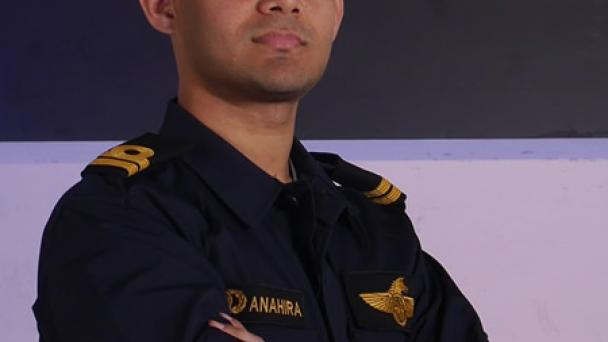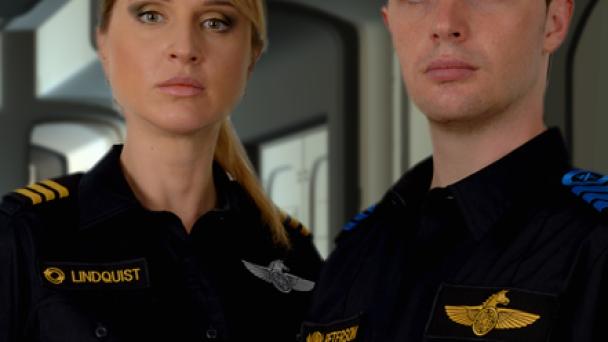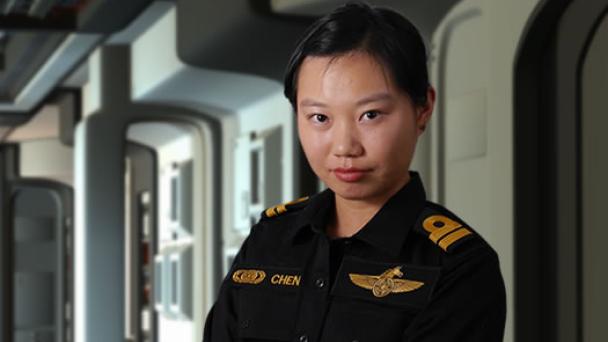July 2025
Form Your Crew
Choose a Mission
Immersive Sci-Fi
Deus Ex Machina
Suspendisse gravida ipsum sit amet ante consectetur, ut tincidunt leo vulputate. Integer maximus tempus ipsum, ac accumsan sapien accumsan eu. Duis laoreet nec sem at facilisis. Nullam rutrum enim semper vestibulum pretium. Cras sit amet sem sed mi tincidunt imperdiet. Phasellus iaculis facilisis enim a tempus. Praesent sit amet tortor quis elit accumsan iaculis in quis libero.
Nullam in libero nec ex dignissim posuere in non tortor. In volutpat, sem in hendrerit vehicula, est velit bibendum tellus, tempus pellentesque mi mauris a arcu. Etiam sit amet felis sit amet leo finibus aliquam. Phasellus ac euismod ipsum. Cras pellentesque sagittis justo id molestie. Nunc fermentum urna sed mi ornare, a bibendum lectus pellentesque. Praesent venenatis justo eget ligula congue hendrerit. Vivamus consectetur sed lorem et finibus. Pellentesque dolor eros, eleifend a vehicula sed, aliquet quis lectus. Quisque et magna at magna lacinia fermentum at non libero. Sed nec sapien in libero pretium luctus. Etiam interdum, mi vel euismod dignissim, leo ipsum porttitor ipsum, quis scelerisque velit ligula hendrerit enim. Donec felis justo, semper tincidunt turpis et, elementum bibendum turpis.
Quisque fringilla vulputate libero at sollicitudin. Aliquam at tellus consequat, ullamcorper ex vitae, feugiat dui. Pellentesque imperdiet enim in dictum volutpat. Curabitur sed quam scelerisque, ornare eros quis, semper ante. Cras sed lorem varius, eleifend magna vitae, vulputate massa. Suspendisse potenti. Morbi et elit malesuada, consequat urna vel, aliquet nisl.
Science Officer
Lieutenant Amelia Chen is a science officer, coordinating the teams that scan and analyse vessels, objects and phenomena that Endeavour encounters in space. It’s her responsibility to ensure that as much as possible is discovered and passed on to the Conn during such encounters to ensure the safety of the ship and the success of the mission.
Amelia is a military officer, having come to the ISDC from the Chinese military’s space program, but an astrophysics officer might just as easily come from an academic background as a warrant officer.
What Would I Be Doing?
Interested in Amelia’s role?
As science officer you'll need to be ready to explain the unexpected or the unusual to the rest of the crew so that they can decide whether to celebrate a new discovery, make first contact or prepare to defend the vessel. While you may be supported by specialists from other scientific disciplines, as the officer on the bridge you are ultimately responsible getting the Conn the information they need.
Tactical Analysis
The tactical team can spot and track other objects such as vessels in space, but only the science officer can scan and visualise those vessels. The science officer would provide analysis of a vessel’s configuration including whether it had been encountered before and provide guidance on its behaviour, including warning of possible hostile action.
Scientific Analysis
Not everything encountered in space is necessarily a ship or even artificially constructed. A science officer needs to analyse an unknown object or phenomenon quickly and provide guidance to the Conn on how to deal with it.
Becoming a Science Officer
Science officers are specialists and so are more focused on their area of expertise than regular line officers, although they may still be expected to manage teams. As well as training on Endeavour’s sensor and analysis systems, science officers also bring with them the knowledge gained from their scientific study and research.
As specialists, science officers can follow either an officer or warrant officer career track, usually depending on where they studied – at a military academy or a university.
Officer Career Track Warrant Officer Career Track
First Steps
It starts by signing up as a cadet or candidate (depending on the career track chosen). It's obligation free and provides access to more information about the mission and Endeavour's technology as well as access to the Academy and assistance from instructors.
You’ll be asked to choose a ship system that interests you and begin training. An aspiring science officer would likely want to get rated on Sensors early to secure mission time.
When you successfully complete a training course you’ll be qualified (or ‘rated’) to operate that system on missions. You’ll also be promoted to Ensign or Junior Warrant Officer.
Gaining Experience
As a new ensign you’ll look to join a crew and undertake missions. Each mission completed gives you experience points (XP) which count towards promotion.
Endeavour’s mission offers a unique opportunity for scientists to move beyond theory as the ship encounters vessels, objects and phenomena, applying their knowledge to each new discovery.
You’ll also need to keep training, as additional ratings are also needed for promotion.
As specialists, science officers would typically choose additional ratings from within the branch. Your choices will be guided by your interests.
Astrophysics provides useful insights during deep space exploration, helping the crew identify and deal with any deep space phenomena encountered
Geophysics is valuable to the search for other civilisations – a key mission objective – by deciding if a planet is worth exploring and where specialist away teams should start
Systems training will only take you so far. Science officers need to draw on research across their chosen disciplines, including current and theoretical propulsion, weapons and communications systems, field, quantum and gravitational mechanics, the behaviour of astronomical bodies and phenomenon… to name just some.
Advancement
Stepping up as executive science officer requires a rank of at least Lieutenant Commander or Senior Warrant Officer. Logging XP as an instructor in addition to missions will help convince the promotion board you have what it takes.
There’s nothing to prevent a military science officer attaining a command rating and taking the captain’s chair, but requires stepping away from the science. As a specialist a science officer (either military or warrant officer) is eligible to qualify for a master rating with the necessary XP and a significant scientific contribution.
Not Sure?
Choosing your first rating doesn’t lock you into any particular career track or role. Choose something that interests you so that you can try simulator missions and get a feel for what you enjoy most.
There are no barriers to changing career tracks at any time. Your accumulated experience and ratings are fully transferable.
Engineering Officer
Lt. Commander Rob Hewson is an engineering officer, part of a team of officers and crew that deliver Endeavour’s power, provide propulsion and monitor, maintain and repair the ship and its systems.
Given his training and experience he is responsible for managing the vessel’s power requirements and for monitoring the status of ship systems. This makes him a key engineering point of contact for the bridge.
What Would I be Doing?
Interested in Rob’s role as an engineering officer?
Depending on mission requirements you’ll co-ordinate with the bridge (or during alert conditions be on the bridge itself) to ensure necessary power allocation to implement mission requirements.
You’ll be drafting power allocation procedures for mission requirements and in combat situations you’ll need to manage that on the fly including sourcing emergency power or routing power around damaged areas of the vessel.
You’ll also monitor the status of vessel systems, providing diagnostic data if issues are detected and directing repair teams.
Becoming an Engineering Officer
Engineering officers are specialists and so are more focused on their area of expertise than line officers, although they will still be expected to manage teams.
As specialists, engineering officers can follow either an officer or warrant officer career track, usually depending on where they studied – at a military academy or a university.
Once you've completed training at the Academy you'll be able to gain more experience by joining simulator missions chosen from a growing library of tactical, exploratory, scientific and diplomatic scenarios.
First Steps
It starts by signing up as a cadet or candidate (depending on the career track chosen). It's obligation free and provides access to more information about the mission and Endeavour's technology as well as access to the Academy and assistance from instructors.
You’ll be asked to choose a ship system that interests you and begin training. An aspiring engineering officer would likely want to attain a Systems Engineer rating early to secure mission time.
When you successfully complete a training course you’ll be qualified (or ‘rated’) to operate that system on missions. You’ll also be promoted to Ensign or Junior Warrant Officer.
Gaining Experience
As a new ensign you’ll look to join a crew and undertake missions. Each mission completed gives you experience points (XP) which count towards promotion.
Missions offer opportunities for engineers to gain experience from the unique challenges and problems that emerge from each encounter.
You’ll also need to keep training, as additional ratings are also needed for promotion. Having both Systems Engineer and Engineer ratings would give broad mission coverage, for example. As specialists, engineering officers would typically choose additional ratings from within the branch.
Remember that in crisis situations everyone looks to engineers for options. This requires not just the system operation skills you’ll get from training but also a thorough knowledge of your system's operating principles and underlying theory.
Advancement
Stepping up as executive engineering officer (or “chief engineer”) requires a rank of at least Lieutenant-Commander. Logging XP as an instructor in addition to missions will help impress the promotion board.
There’s nothing to prevent an engineer attaining a command rating and taking the captain’s chair, but not all engineers are happy leaving the engine room. As a specialist an engineering officer is eligible to qualify for a master rating with the necessary XP and a significant technical contribution.
Not Sure?
Choosing your first rating doesn’t lock you into any particular career track or role. Choose something that interests you so that you can try simulator missions and get a feel for what you enjoy most.
There are no barriers to changing career tracks at any time. Your accumulated experience and ratings are fully transferable.
Operations Branch
What We Do
Operations is responsible for the efficient running of the vessel, including logistics, resource allocation and operational management.
The operations team oversees the allocation of power between various systems as well as the allocation of sensory capacity between departments (for example science and tactical) - this function is particularly crucial during alert conditions.
Other functions include the management of specific operations such as away missions - ensuring the mission is properly equipped, has appropriate transportation and is supported by the necessary communications, data and sensory resources.
Navigation Branch
What We Do
The Navigation Branch is responsible for maneuvering the vessel, ensuring it reaches an intended desination and for accurately establishing the vessel's position in space at any given time.
Navigation officers operate and maintain the vessel's navigational systems, which are dedicated astronomical sensor systems that use the position of fixed astronomical points (such as stars) in relation to the vessel to establish it's position in space. Charts which identify such fixed astronomical points ("star charts") are maintained by the navigation branch, including the addition of new stars as they fall into navigationally significant range.









